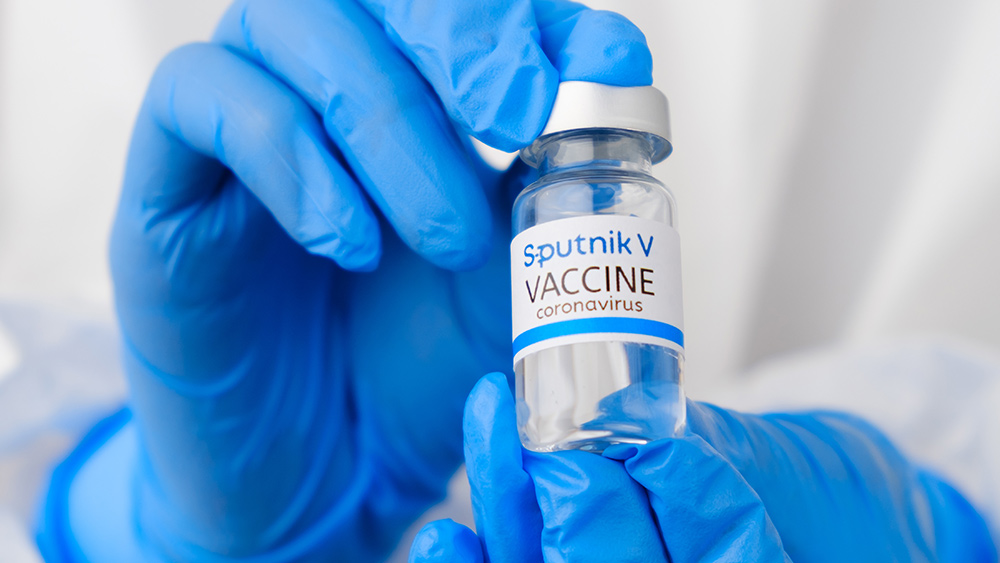Denmark permanently stops rollout for AstraZeneca vaccine, citing concerns about blood clots
04/23/2021 / By Arsenio Toledo

On Wednesday, April 14, Denmark announced that it would no longer use the Wuhan coronavirus (COVID-19) vaccine developed by Oxford-AstraZeneca. Danish health authorities said the decision was made because of a “real risk of severe side effects,” notably the deadly blood clotting.
Denmark is the first country to take this step against the AstraZeneca vaccine. Many other nations have suspended their use of the controversial vaccine.
“Based on the scientific findings, our overall assessment is there is a real risk of severe side effects associated with using the COVID-19 vaccine from AstraZeneca,” said Director General Soren Brostrom of the Danish Health Authority (DHA). “We have, therefore, decided to remove the vaccine from our vaccination program.”
The DHA talked about people who were vaccinated with AstraZeneca and experienced blood clots, hemorrhaging and presenting with a low number of blood platelets.
Residents of Denmark who have already received the first dose of the AstraZeneca vaccine are invited by the government to receive a different vaccine as their second dose. This will most likely be the vaccine from Pfizer-BioNTech or the one from Moderna.
The DHA added that it can choose to reintroduce the controversial vaccine at a later date if the situation in the country changes for the worse, or if new information regarding the supposed safety of the drug presents itself.
AstraZeneca said it respected Denmark’s decision and would continue to provide the country with data to inform the country’s future decisions regarding vaccinations. (Related: Oxford suspends trial of AstraZeneca vaccine on children amid fears of its link to deadly blood clots.)

“Implementation and rollout of the vaccine program is a matter for each country to decide, based on local conditions,” wrote AstraZeneca in a statement. “We will continue to collaborate with the regulators and local authorities to provide all available data to inform their decisions.”
AstraZeneca added that it was working with drug regulators around the world to better understand the individual cases, epidemiology and the possible mechanisms that could explain the adverse effects.
Listen to this special Situation Update breaking news episode of the Health Ranger Report, a podcast by Mike Adams, the Health Ranger, as he talks about how the antibodies supposedly created by the coronavirus vaccines can cause blood clots in the brain, lungs and heart.
Denmark will sell most of its unused supply of AstraZeneca shots
During the press conference DHA held announcing Denmark’s decision, Brostrom said the coronavirus outbreak in the country was currently under control even though its vaccine rollout was very slow.
A large proportion of the country’s older population has already been vaccinated, and the remaining portions of society that have yet to receive a vaccine had a lower risk of contracting the virus.
Brostrom said that his country’s “best estimate” based on local research suggests a one in 40,000 risk of getting a blood clot from an AstraZeneca vaccine. He added that the higher incidence of clotting among younger women who have received the shot appears to be linked to the fact that most of the country’s healthcare workers – most of whom are female – were vaccinated early.
Brostrom added that his country’s decision to cut ties with the AstraZeneca vaccine was informed by Denmark’s ability to keep the pandemic in check even without relying on mass vaccinations.
Meanwhile, several countries have already approached Denmark to ask whether they can purchase the country’s unused AstraZeneca vaccines. Denmark still has around 200,000 shots left, and Brostrom has signaled that his DHA was open to the idea. But he said that Denmark would have to keep a reserve supply of vaccines, just in case the country suddenly finds itself fighting off an intense wave of infections.
About a third of Denmark’s unused supply of AstraZeneca vaccines has a shelf-life until June.
Denmark was one of the first countries to suspend the use of the AstraZeneca vaccine when it did so on March 11 after reports of blood clots. At the time, Brostrom’s DHA said that the suspension was a precautionary move, and the agency reiterated its support for the company’s vaccine, calling it “effective and safe.”
Both British and European drug regulators have agreed that there was a link between the AstraZeneca vaccine and the blood clots but said that the benefits of taking the company’s coronavirus vaccine still outweighed the risks.
Most countries in Western Europe have limited the use of the AstraZeneca vaccine to older age groups, usually to people over the age of 60. In Eastern Europe, the AstraZeneca vaccine continues to be used mostly without restrictions.
Denmark’s vaccination plan also includes the Johnson & Johnson vaccine
Denmark was planning on finishing up its mass vaccination drive by July 25, but the removal of the AstraZeneca vaccine has pushed back the country’s timetable to early August. This revised timeline assumes that the country will continue using the single-shot Johnson & Johnson coronavirus vaccine.
But the rollout of the Johnson & Johnson vaccine in Europe has also been delayed over similar blood clotting concerns, and Denmark itself has suspended its use, pending further study. The Johnson & Johnson vaccine comprises around a third of the country’s total contracted supply of coronavirus vaccines.
The decision to delay the Johnson & Johnson vaccine was made by the company itself after health authorities in the United States called for an immediate pause on the vaccine’s use while the country investigates several severe cases of blood clots.
Analysts have warned that if the EU was unable to use the Johnson & Johnson vaccine, the 27-nation bloc’s mass vaccination campaign could take two months longer than expected.
Learn more about the controversies surrounding the coronavirus vaccines like AstraZeneca and Johnson & Johnson by reading the latest articles at Vaccines.news.
Sources include:
Tagged Under: adverse effects, AstraZeneca, Big Pharma, Blood clots, coronavirus, coronavirus vaccine, covid-19, Denmark, EU, European Union, Vaccine injuries




















